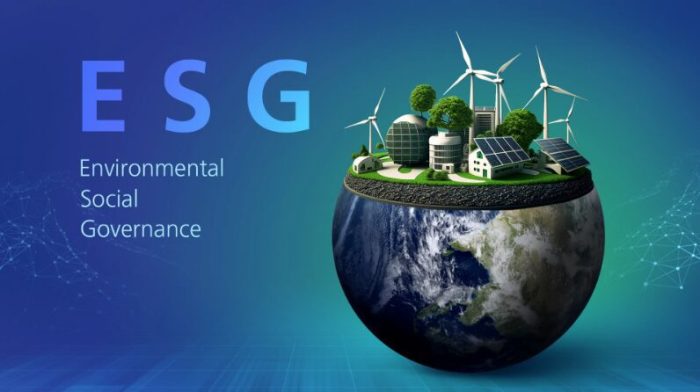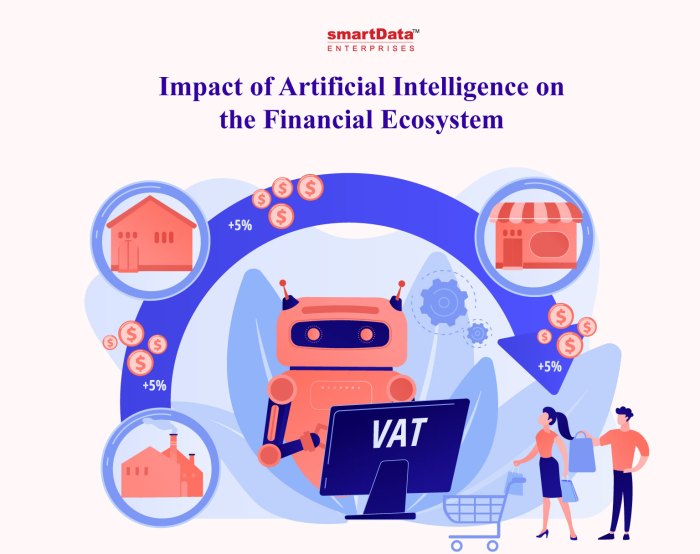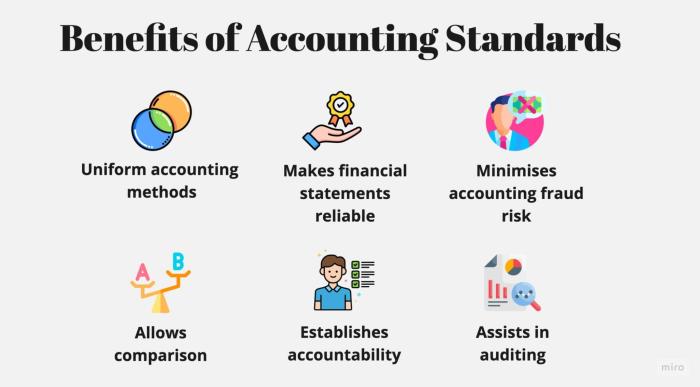The Role of Accounting in Sustainable Development and ESG Reporting is rapidly evolving, moving beyond traditional financial metrics to encompass environmental, social, and governance (ESG) factors. This shift reflects a growing awareness of the interconnectedness between financial performance and sustainability, demanding a more holistic approach to business operations and reporting. This exploration delves into the historical context of this transformation, examines key ESG metrics and reporting methodologies, and analyzes the expanding role of accountants in ensuring the accuracy and reliability of ESG disclosures.
We will investigate how integrating ESG considerations into financial decision-making can improve risk management, enhance long-term value creation, and foster stronger stakeholder engagement. Furthermore, we’ll address the challenges and opportunities presented by this evolving landscape, including the role of technology and the need for further standardization in sustainable accounting practices.
The Evolution of Accounting Practices in Relation to Sustainability
The historical development of accounting practices reveals a significant shift from a purely financial focus to a more holistic approach encompassing environmental and social considerations. This evolution reflects a growing awareness of the interconnectedness between business operations and the broader societal and environmental well-being. Traditional accounting, primarily concerned with financial performance, is now being augmented by frameworks that integrate sustainability metrics, driving a more comprehensive and responsible approach to business reporting.
Traditional accounting practices, rooted in the industrial era, emphasized financial metrics like profitability, revenue, and cost. These approaches, while crucial for understanding financial health, often overlooked the broader environmental and social impacts of business activities. Conversely, contemporary sustainability-focused accounting methods incorporate environmental, social, and governance (ESG) factors into the reporting process. This integrated approach aims to provide a more complete picture of a company’s performance, considering its impact on stakeholders, the environment, and future generations. The shift involves not just reporting but also influencing decision-making, promoting sustainable practices, and fostering greater corporate accountability.
A Historical Shift in Accounting Standards
The incorporation of environmental and social considerations into accounting standards has been a gradual but significant process. Early efforts focused on environmental disclosures, driven by growing concerns about pollution and resource depletion. Later, the focus broadened to encompass social issues like labor practices, human rights, and community relations. This evolution reflects a growing recognition that a company’s financial success is inextricably linked to its environmental and social performance. The development of global reporting initiatives, such as the Global Reporting Initiative (GRI) and the Sustainability Accounting Standards Board (SASB), has further standardized and legitimized sustainability reporting, providing frameworks for companies to measure and disclose their ESG performance. International Sustainability Standards Board (ISSB) is another key player, working towards global baseline standards.
Comparison of Traditional and Contemporary Accounting Practices
| Feature | Traditional Accounting | Contemporary Sustainability-Focused Accounting |
|---|---|---|
| Focus | Financial performance (profitability, revenue, cost) | Financial and non-financial performance (ESG factors, environmental impact, social responsibility) |
| Metrics | Quantitative financial data | Quantitative and qualitative data, including environmental and social indicators |
| Reporting | Primarily financial statements | Integrated reporting encompassing financial and sustainability performance |
| Objective | Maximize shareholder value | Create value for all stakeholders, including society and the environment |
Examples of Early Adopters and Their Impact
Several companies have been early adopters of sustainable accounting practices, demonstrating the positive impact of integrating ESG considerations into their business models. For example, Unilever, a consumer goods giant, has been a pioneer in integrating sustainability into its operations and reporting. Their commitment to sustainable sourcing, reduced carbon emissions, and improved social performance has not only enhanced their brand reputation but also contributed to improved operational efficiency and long-term value creation. Similarly, Patagonia, known for its commitment to environmental conservation, has consistently incorporated sustainability into its business strategy and transparently reports on its environmental and social impact. Their approach has resonated strongly with consumers, contributing to their brand loyalty and market success. These examples illustrate that integrating sustainability into business practices can lead to both environmental and financial benefits.
Timeline of Key Milestones in Sustainable Accounting
The development of sustainable accounting has been marked by several key milestones:
- 1970s-1980s: Early environmental disclosures emerge, driven by growing environmental awareness.
- 1990s: The Global Reporting Initiative (GRI) is established, providing a framework for sustainability reporting.
- 2000s: Increased focus on corporate social responsibility (CSR) and the development of various sustainability reporting standards.
- 2010s: The rise of ESG investing and the increasing integration of ESG factors into investment decisions.
- 2020s: Growing demand for standardized and comparable sustainability reporting, leading to the development of the International Sustainability Standards Board (ISSB).
Key Financial Metrics for ESG Reporting: The Role Of Accounting In Sustainable Development And ESG Reporting
Effective ESG reporting requires the careful selection and consistent application of key financial metrics. These metrics provide stakeholders with a quantifiable understanding of a company’s environmental, social, and governance performance, enabling informed decision-making and accountability. The choice of metrics will depend on the specific industry, company size, and materiality assessment.
Quantifying and standardizing ESG metrics across diverse industries presents significant challenges. Different industries face unique environmental pressures and social impacts, leading to variations in relevant metrics and reporting frameworks. Further complexity arises from the lack of universally accepted standards and definitions for many ESG indicators. Data availability and quality also vary considerably, hindering consistent comparisons between companies and sectors. Finally, the subjective nature of some ESG factors makes objective quantification difficult, often relying on qualitative assessments and expert judgments.
Understand how the union of The Role of Accounting in Economic Stability can improve efficiency and productivity.
ESG Metrics and Their Measurement
Several core financial metrics are commonly used to measure ESG performance. Environmental metrics often focus on carbon emissions (Scope 1, 2, and 3), water consumption, waste generation, and energy efficiency. Social metrics frequently include employee satisfaction, diversity and inclusion metrics, community engagement, and human rights performance. Governance metrics typically encompass board diversity, executive compensation, risk management practices, and anti-corruption measures. These metrics can be expressed in absolute terms, relative terms (e.g., emissions per unit of production), or as a change over time.
Comparison of ESG Rating Methodologies
Various organizations employ different methodologies for evaluating and rating ESG performance. These methodologies often differ in their weighting of various factors, data sources, and the specific indicators they prioritize. This table provides a simplified comparison of some prominent methodologies and their key indicators; it is not exhaustive and the specific indicators used can vary over time and across companies within each methodology.
| Methodology | Environmental Indicators | Social Indicators | Governance Indicators |
|---|---|---|---|
| MSCI ESG Ratings | Greenhouse gas emissions, water usage, waste generation | Employee relations, health and safety, product responsibility | Board structure, executive compensation, shareholder rights |
| Sustainalytics | Climate change, resource depletion, pollution | Labor standards, human rights, community relations | Corporate governance, ethics and integrity, risk management |
| Bloomberg ESG Data | Carbon footprint, energy efficiency, environmental fines | Diversity and inclusion, employee satisfaction, human rights | Board independence, executive compensation, political contributions |
| S&P Global ESG Scores | Environmental performance, resource management, climate strategy | Social capital, human capital, product responsibility | Governance structure, ethics, stakeholder engagement |
Best Practices for Data Collection and Verification in ESG Reporting
Reliable and verifiable data is crucial for credible ESG reporting. Best practices include establishing robust data collection processes, using standardized methodologies, and implementing independent verification mechanisms. Data should be consistently tracked and updated, ensuring accuracy and completeness. Third-party assurance from reputable firms can significantly enhance the credibility of ESG reports, providing stakeholders with greater confidence in the reported information. Transparency in data collection methods and potential limitations should also be disclosed to maintain trust and accountability.
The Role of Accountants in ESG Assurance
The increasing importance of Environmental, Social, and Governance (ESG) factors in investment decisions and corporate reporting has significantly expanded the role of accountants. No longer solely focused on traditional financial statements, accountants are now crucial in verifying and assuring the accuracy of ESG disclosures, adding a layer of credibility and trust to these increasingly vital reports. This expanded role requires a new set of skills and a deep understanding of both financial and non-financial data.
Accountants are becoming key players in providing assurance services related to ESG reporting, bridging the gap between corporate sustainability claims and verifiable evidence. This is driven by growing investor demand for transparency and accountability in ESG performance, as well as regulatory pressures to ensure the reliability of ESG disclosures. The lack of standardized ESG reporting frameworks and the inherent complexities of measuring and verifying ESG metrics present unique challenges, making the accountant’s role even more critical.
Types of ESG Assurance Services
Accountants offer a range of assurance services related to ESG reporting, mirroring the spectrum of services provided for traditional financial statements. These services vary in scope and level of assurance provided, ranging from limited assurance to reasonable assurance. Limited assurance involves a less extensive review of the data and processes, while reasonable assurance involves a more thorough examination, similar to an audit of financial statements. Other services include ESG data validation, verification of specific ESG metrics, and the review of a company’s ESG management systems. The specific service chosen depends on the client’s needs and the level of assurance required by stakeholders.
Potential Liabilities for Accountants in ESG Reporting
The provision of inaccurate or misleading ESG assurance carries significant potential liabilities for accountants. If an accountant provides an unqualified opinion on an ESG report that contains material misstatements, they could face legal action from investors who suffered financial losses due to reliance on the flawed report. This liability could include financial penalties, reputational damage, and loss of professional licenses. For example, if an accountant fails to identify and report the systematic underreporting of greenhouse gas emissions by a company, and this leads to investors making decisions based on inaccurate data, they could face substantial legal repercussions. Similarly, failing to detect and report instances of unethical labor practices or environmental damage could result in legal and reputational issues for the accounting firm.
Skills and Competencies for Accountants in ESG Assurance
The evolving landscape of ESG reporting demands a specific skillset from accountants involved in assurance. A strong foundation in traditional accounting principles remains crucial, but this needs to be supplemented by a broader understanding of ESG issues and metrics.
- Understanding of ESG Frameworks and Standards: Familiarity with global reporting initiatives like the Global Reporting Initiative (GRI), Sustainability Accounting Standards Board (SASB) standards, and the Task Force on Climate-related Financial Disclosures (TCFD) recommendations is essential.
- Data Analysis and Verification Skills: The ability to analyze large and complex datasets, including both quantitative and qualitative information, is crucial for verifying the accuracy of ESG disclosures. This includes the ability to identify inconsistencies and potential biases in the data.
- Knowledge of Sustainability Metrics: A deep understanding of key ESG metrics, such as carbon emissions, water usage, waste generation, diversity and inclusion data, and human rights performance, is necessary for effective assurance.
- Stakeholder Engagement and Communication: Effective communication with company management, investors, and other stakeholders is vital for explaining the scope and limitations of ESG assurance services.
- Critical Thinking and Professional Skepticism: Maintaining a skeptical mindset and critically evaluating the information provided by the company is crucial for ensuring the integrity of the assurance process.
- Technological Proficiency: Proficiency in data analytics tools and technologies is becoming increasingly important for handling large volumes of ESG data.
Integrating ESG Factors into Financial Decision-Making

The integration of Environmental, Social, and Governance (ESG) factors into financial decision-making is no longer a niche practice but a crucial element of responsible and profitable business operations. A growing body of evidence demonstrates a strong correlation between strong ESG performance and long-term financial success. This integration impacts investment strategies, corporate strategy, and risk management, ultimately enhancing a company’s overall value proposition.
ESG factors influence investment decisions by providing a more comprehensive picture of a company’s potential risks and opportunities beyond traditional financial metrics. Investors are increasingly incorporating ESG data into their due diligence processes, recognizing that companies with robust ESG profiles are often better positioned to navigate emerging challenges and capitalize on future growth opportunities. This shift reflects a growing awareness that financial performance is intrinsically linked to environmental and social sustainability. Companies with strong ESG performance tend to attract more responsible investors, potentially lowering their cost of capital.
ESG Data and Improved Risk Management
Incorporating ESG data significantly improves risk management. By systematically identifying and assessing ESG-related risks, companies can proactively mitigate potential financial losses. For example, companies neglecting climate change risks, such as those related to carbon emissions regulations or extreme weather events, could face substantial financial penalties and operational disruptions. Similarly, companies with poor labor practices or weak governance structures may experience reputational damage, leading to decreased consumer trust and investor confidence. Proactive ESG integration allows for the identification and management of these risks before they escalate into significant financial liabilities. This proactive approach enhances resilience and long-term value creation.
ESG Integration and Long-Term Value Creation
The integration of ESG considerations into corporate strategy enhances long-term value creation in several ways. Companies that prioritize sustainability often attract and retain top talent, improving employee morale and productivity. Strong ESG performance can also lead to improved brand reputation and enhanced customer loyalty, increasing market share and profitability. Moreover, companies that embrace sustainable practices often achieve operational efficiencies through reduced resource consumption and waste minimization. This translates into cost savings and increased profitability. Finally, access to innovative technologies and green financing options often favors companies with strong ESG profiles, providing a competitive edge in the market.
Hypothetical Case Study: Neglecting ESG Factors
A hypothetical textile company, “Threads Inc.”, prioritizes cost minimization above all else. They source materials from suppliers with questionable labor practices, resulting in lower production costs. They also minimize environmental protection measures, leading to significant pollution. Initially, this strategy boosts short-term profits. However, a major consumer boycott emerges due to reports of unethical labor practices. The company faces substantial fines for environmental violations. Their reputation is severely damaged, leading to decreased sales and investor flight. The long-term financial consequences—including lost market share, legal fees, and remediation costs—far outweigh the initial cost savings achieved by neglecting ESG factors. Threads Inc. illustrates the significant financial risks associated with ignoring ESG considerations.
Investor, Stakeholder, and Management Perspectives on ESG Integration
Investors, stakeholders, and management hold differing perspectives on ESG integration, though a growing convergence is evident. Investors, particularly institutional investors and socially responsible investors, increasingly demand ESG transparency and performance. They see ESG factors as integral to risk assessment and long-term value creation, impacting their investment decisions directly. Stakeholders, including employees, customers, and communities, are also increasingly vocal about their expectations for responsible corporate behavior. They influence companies through consumer choices, employee retention, and community engagement. Management, initially, might view ESG integration as an added cost or regulatory burden. However, forward-thinking management teams recognize the strategic advantages of ESG integration, viewing it as a driver of innovation, efficiency, and long-term competitiveness. The increasing pressure from investors and stakeholders is pushing more management teams to embrace ESG as a core business strategy.
The Impact of Sustainability Reporting on Stakeholder Engagement
Transparent and comprehensive ESG reporting significantly improves communication with stakeholders, fostering trust and strengthening relationships. By openly disclosing environmental, social, and governance performance, companies provide stakeholders with the information they need to assess the organization’s sustainability efforts and make informed decisions. This enhanced transparency builds confidence and strengthens the company’s reputation.
Stakeholder engagement regarding sustainability issues offers numerous benefits. Improved decision-making is a key advantage, as companies gain valuable insights from diverse perspectives, leading to more effective and responsible strategies. Enhanced reputation and brand value are also significant benefits, attracting investors who prioritize sustainability and improving relationships with consumers and communities. Proactive engagement can help identify and mitigate potential risks, contributing to long-term resilience and success.
Types of Stakeholder Engagement Initiatives
Companies can employ various methods to engage stakeholders on sustainability matters. Effective engagement requires a multi-faceted approach, tailored to the specific needs and interests of different stakeholder groups. A strategic and well-planned approach is crucial for successful engagement.
- Surveys and Feedback Mechanisms: Regular surveys and online feedback forms allow companies to gather quantitative and qualitative data on stakeholder perceptions and expectations regarding ESG performance.
- Stakeholder Workshops and Forums: These interactive sessions provide a platform for direct dialogue and collaborative problem-solving between the company and its stakeholders.
- Materiality Assessments: These assessments help identify the ESG issues that are most important to stakeholders, guiding the company’s reporting and engagement efforts.
- Community Engagement Programs: Initiatives such as volunteering, community investment, and partnerships with local organizations demonstrate a commitment to social responsibility and build trust with local communities.
- Dialogue with Investors: Regular communication with investors, including presentations, reports, and meetings, is crucial for transparency and building investor confidence in the company’s sustainability strategy.
Examples of Successful Stakeholder Engagement Strategies
Several companies have demonstrated the effectiveness of proactive stakeholder engagement in improving ESG performance. These examples highlight the benefits of incorporating stakeholder feedback into decision-making processes.
- Unilever’s Sustainable Living Plan: Unilever’s ambitious plan, which sets targets for reducing environmental impact and improving social conditions, involves extensive stakeholder engagement throughout its value chain. They actively solicit feedback from consumers, suppliers, and other stakeholders to inform their sustainability strategies.
- Patagonia’s Commitment to Environmental Advocacy: Patagonia’s strong focus on environmental protection includes active engagement with environmental organizations and advocating for policies that protect the environment. This transparent approach resonates strongly with environmentally conscious consumers.
- Microsoft’s Carbon Negative Commitment: Microsoft’s commitment to becoming carbon negative by 2030 involves significant stakeholder engagement, including partnerships with organizations working on carbon removal technologies and transparency regarding their progress toward their ambitious goal.
Challenges and Opportunities in Sustainable Accounting
The integration of environmental, social, and governance (ESG) factors into accounting practices presents both significant challenges and exciting opportunities. While the demand for transparent and reliable ESG reporting is rapidly increasing, several hurdles remain in achieving widespread adoption and standardization. Successfully navigating these challenges will unlock the potential for more sustainable and responsible business practices globally.
Key Challenges in Implementing Sustainable Accounting Practices, The Role of Accounting in Sustainable Development and ESG Reporting
The implementation of sustainable accounting practices faces several interconnected challenges. Data availability and reliability are major concerns. Many ESG metrics lack consistent definitions and standardized measurement methods, making comparisons between companies difficult. Furthermore, the inherent complexity of ESG issues, encompassing diverse social and environmental impacts, requires sophisticated data collection and analysis capabilities, often beyond the resources of smaller organizations. Another challenge lies in the integration of ESG data into existing financial reporting frameworks. Reconciling traditional financial metrics with qualitative ESG information requires significant adjustments to accounting processes and systems. Finally, ensuring the accuracy and credibility of ESG disclosures necessitates robust assurance mechanisms and increased accountability from reporting entities.
Opportunities Presented by Growing Demand for ESG Reporting
The growing demand for ESG reporting presents numerous opportunities for businesses and the accounting profession. Companies that proactively embrace sustainable accounting practices can enhance their reputation, attract investors seeking ESG-aligned investments, and gain a competitive advantage in increasingly environmentally and socially conscious markets. Investors are increasingly integrating ESG factors into their investment decisions, creating a significant market incentive for transparent and reliable ESG reporting. Furthermore, the demand for ESG expertise is creating new opportunities for accountants and other professionals specializing in sustainability reporting and assurance. This growing demand drives innovation in data analytics, technology solutions, and professional development programs, leading to a more sophisticated and robust ESG reporting ecosystem.
The Role of Technology in Improving Data Collection and Analysis for Sustainable Accounting
Technology plays a crucial role in overcoming the challenges of sustainable accounting. Data management systems can help streamline the collection, processing, and analysis of ESG data from various sources, including internal operations, supply chains, and external databases. Artificial intelligence (AI) and machine learning (ML) can be used to automate data analysis, identify patterns, and improve the accuracy of ESG metrics. Blockchain technology can enhance the transparency and traceability of supply chains, providing more reliable data on environmental and social impacts. Advanced analytics tools can help companies assess their ESG risks and opportunities, enabling better decision-making and resource allocation. For example, AI-powered platforms can analyze satellite imagery to monitor deforestation in supply chains, while blockchain can track the ethical sourcing of raw materials.
Recommendations for Future Developments in Sustainable Accounting Standards and Practices
To further enhance the effectiveness and reliability of sustainable accounting, several recommendations are crucial. The development of globally consistent and comparable ESG reporting standards is essential. This requires collaboration between international accounting bodies, regulators, and industry stakeholders to establish clear definitions, measurement methodologies, and assurance frameworks. Increased focus on materiality assessments is necessary to ensure that ESG disclosures focus on the issues most relevant to a company’s business and stakeholders. This will help prevent “greenwashing” and promote more meaningful and impactful reporting. Furthermore, the development of robust assurance mechanisms, including independent verification and auditing of ESG data, is critical to enhance the credibility of ESG disclosures. Finally, greater integration of ESG factors into financial decision-making processes will help drive meaningful change and ensure that sustainability considerations are not treated as separate from core business strategies. This might involve incorporating ESG metrics into executive compensation packages or linking ESG performance to access to capital.
Outcome Summary
In conclusion, the integration of ESG considerations into accounting practices signifies a crucial step towards a more sustainable and responsible future. The evolving role of accountants in verifying ESG disclosures, coupled with the increasing demand for transparency and accountability, underscores the critical importance of this field. By embracing sustainable accounting principles, businesses can enhance their long-term value, strengthen stakeholder relationships, and contribute to a more sustainable global economy. The journey towards comprehensive and reliable ESG reporting is ongoing, but the direction is clear: a future where financial performance and sustainability are inextricably linked.
Common Queries
What are the potential penalties for inaccurate ESG reporting?
Penalties can range from fines and legal action to reputational damage and loss of investor confidence. The severity depends on the nature and extent of the inaccuracies.
How can small and medium-sized enterprises (SMEs) approach ESG reporting?
SMEs can start by focusing on material ESG issues relevant to their business and gradually implement reporting practices, potentially using streamlined frameworks or seeking external guidance.
What is the difference between ESG assurance and ESG verification?
ESG verification involves checking the accuracy of reported data, while ESG assurance provides a higher level of scrutiny and independent opinion on the completeness and reliability of the ESG report.
How can technology improve ESG data collection and analysis?
Technology, such as data analytics platforms and AI-powered tools, can automate data collection, improve data quality, and facilitate more efficient analysis of complex ESG data sets.








